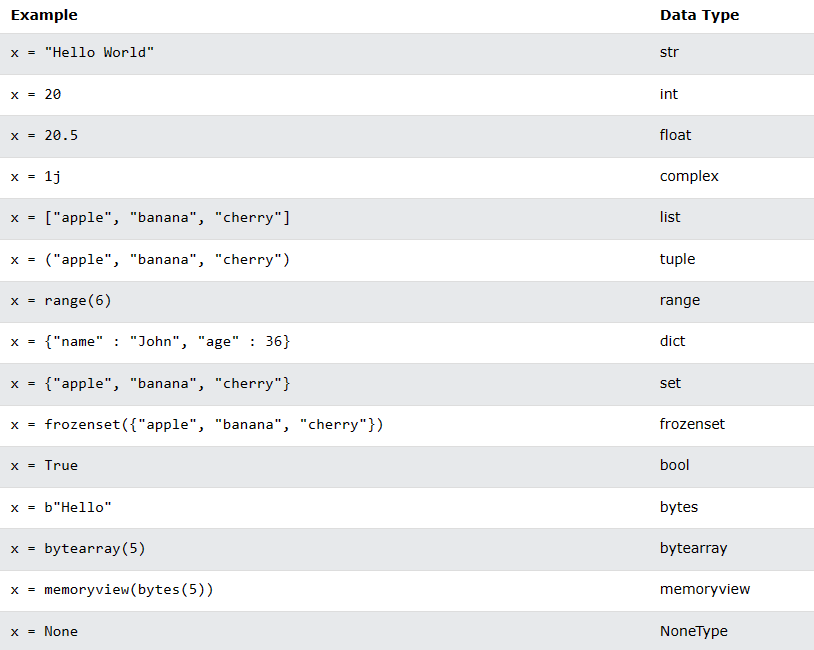Python Tutorial (w3schools.com) W3C的教程挺好的
变量
Python has no command for declaring a variable.
Python 没有用于声明变量的命令。
A variable is created the moment you first assign a value to it.
变量是在您第一次为其赋值时创建的。
Variables do not need to be declared with any particular type, and can even change type after they have been set.
变量不需要用任何特定的 类型 来声明,甚至可以在设置后更改类型。
You can get the data type of a variable with the type() function.
您可以使用 type() 函数获取变量的数据类型。
String variables can be declared either by using single or double quotes:
字符串变量可以使用单引号或双引号声明:
Variables that are created outside of a function (as in all of the examples above) are known as global variables.
在函数外部创建的变量(如所有示例中所示) 上面)被称为全局变量。
Global variables can be used by everyone, both inside of functions and outside.
全局变量可以被任何人使用,无论是在 功能和外部。
If you create a variable with the same name inside a function, this variable will be local, and can only be used inside the function. The global variable with the same name will remain as it was, global and with the original value.
如果在函数内创建同名变量,则该变量 将是本地的,并且只能在函数内部使用。全局变量 具有相同的名称将保持原样、全局且具有原始值。
Variables that are created outside of a function (as in all of the examples above) are known as global variables.
在函数外部创建的变量(如所有示例中所示) 上面)被称为全局变量。
Global variables can be used by everyone, both inside of functions and outside.
全局变量可以被任何人使用,无论是在 功能和外部。
To create a global variable inside a function, you can use the global keyword.
要在函数内创建全局变量,可以使用 global 关键字。

Number
There are three numeric types in Python:
Python 中共有三种数值类型:
intfloatcomplex虚数类型
字符串
Strings in python are surrounded by either single quotation marks, or double quotation marks.
python 中的字符串由单引号或双引号引起来。
‘hello’ is the same as “hello”.
‘hello’ 与 “hello” 相同。
You can assign a multiline string to a variable by using three quotes:
您可以使用三个引号将多行字符串分配给变量:
1 | a = """Lorem ipsum dolor sit amet, |